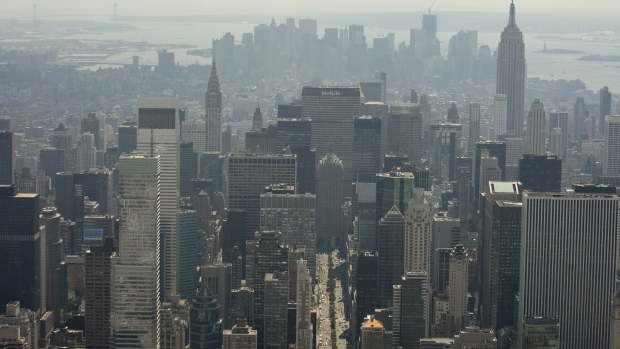
Chinese Firms Are Investing Abroad at Fastest Pace in Eight Years
China’s overseas investment is heading for an eight-year high as its dominant firms build more factories abroad, a shift that could soften criticism of Beijing’s export drive.
Latest Videos
The information you requested is not available at this time, please check back again soon.

China’s overseas investment is heading for an eight-year high as its dominant firms build more factories abroad, a shift that could soften criticism of Beijing’s export drive.

The Related Cos. founder is following the money flowing south by bringing his influence to everything from real estate to schools and health care.

Real estate brokerage stocks tumbled Thursday on waning expectations for Federal Reserve interest-rate cuts, and as a disappointing earnings release raised concern about the sector’s outlook.

Initial data on US gross domestic product for the first quarter of 2024 is set to confirm an ongoing economic boom amid a tailwind from surging immigration.

A South Florida office skyscraper from Related Cos. landed new finance tenants, including a John Paulson business and a private equity firm that counts Mark Bezos as a founding partner.
May 3, 2018
, Bloomberg News

The cost of Airbnb to New York renters: US$616 million.
That’s the conclusion of a new report by city Comptroller Scott Stringer that details the home-sharing website’s impact on housing affordability from 2009 to 2016. It’s no secret to New Yorkers that leasing costs skyrocketed during the time. But to isolate the Airbnb effect, Stringer’s office compared the growth in what rents would have been without listings on the site to what they actually were. Airbnb Inc. disputed the study’s findings, calling them “wrong on the facts” and containing “substantive issues with the methodology.”
Owners who list their apartments for short-term stays essentially are removing those units from the rental market, reducing the supply of housing and pushing up the cost of what remains, according to the report. For each 1 per cent of all residential units in a neighbourhood listed on Airbnb, rents in that neighborhood went up 1.58 per cent, Stringer said. The estimated US$616 million impact is for 2016 alone.
Neighborhoods in Midtown and lower Manhattan -- such as Chelsea, Greenwich Village and Soho -- took the greatest hit, with about 20 percent of rent increases in those areas due to Airbnb, according to the report. In 2016, about 52 per cent of Airbnb listings were in Manhattan, with a particular concentration south of 59th Street, and 35 per cent were in Brooklyn.
“From Bushwick to Chinatown and in so many neighborhoods in between, affordable apartments that should be available to rent never hit the market because they are making a profit for Airbnb,” Stringer said in the report.
Most Airbnb hosts share the homes in which they live, and don’t permanently remove housing from the market, the San Francisco-based startup said in a rebuttal of Stringer’s report. Those who list their homes on Airbnb are “once again faulted for an affordability crisis that they have no part in -- and one that they themselves face every day,” the company said.
--With assistance from Molly Schuetz